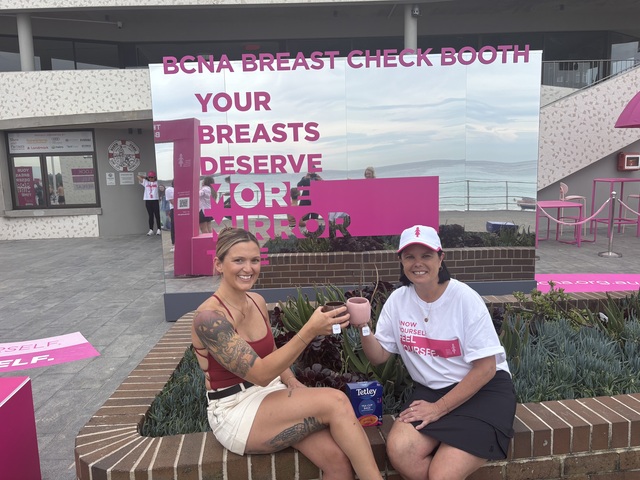Every day in Australia, 58 people are diagnosed with breast cancer.
It remains the most commonly diagnosed cancer among women, with more than 21,000 new cases expected in 2025. Heartbreakingly, nine Australians die from the disease every single day.
Despite these confronting numbers, conversations about breast cancer are often avoided, leaving many women to face their fears in silence.
A new national campaign from tea brand Tetley in support of Breast Cancer Network Australia (BCNA) aims to change that, by transforming something as simple as a chat over a cup of tea into what could be a life changing conversation.
The Uncomfortable Cup campaign, launched ahead of Breast Cancer Awareness Month this October, encourages Australians to have difficult but vital conversations about symptoms, screening, and support. Working together, BCNA and Tetley are using a range of approaches to start meaningful conversations and provide strength through shared experiences.
As part of the campaign, Tetley is raising essential funds to support the work of BCNA through a limited-edition pink pack of Tetley Tea Cup 100s from which it will be donating 5 cents for every pack sold to BCNA. Funds raised will help ensure that every Australian affected by breast cancer has access to BCNA’s trusted information, support services, and advocacy.
To bring the campaign to life, Tetley has commissioned a series of unique artisan cups each with a sensory touch design relating to some of the physical symptoms individuals might be able to feel as part of self-examination.
Tetley head of marketing ANZ Divya Shrivastava said, “Sharing a cup of tea can be the catalyst for conversations, which no matter how uncomfortable, are deeply necessary.”
“Whether checking in with a loved one, sharing a personal story, or learning about symptoms and screening, these moments of connection can lead to early detection, greater understanding, and stronger support.”








